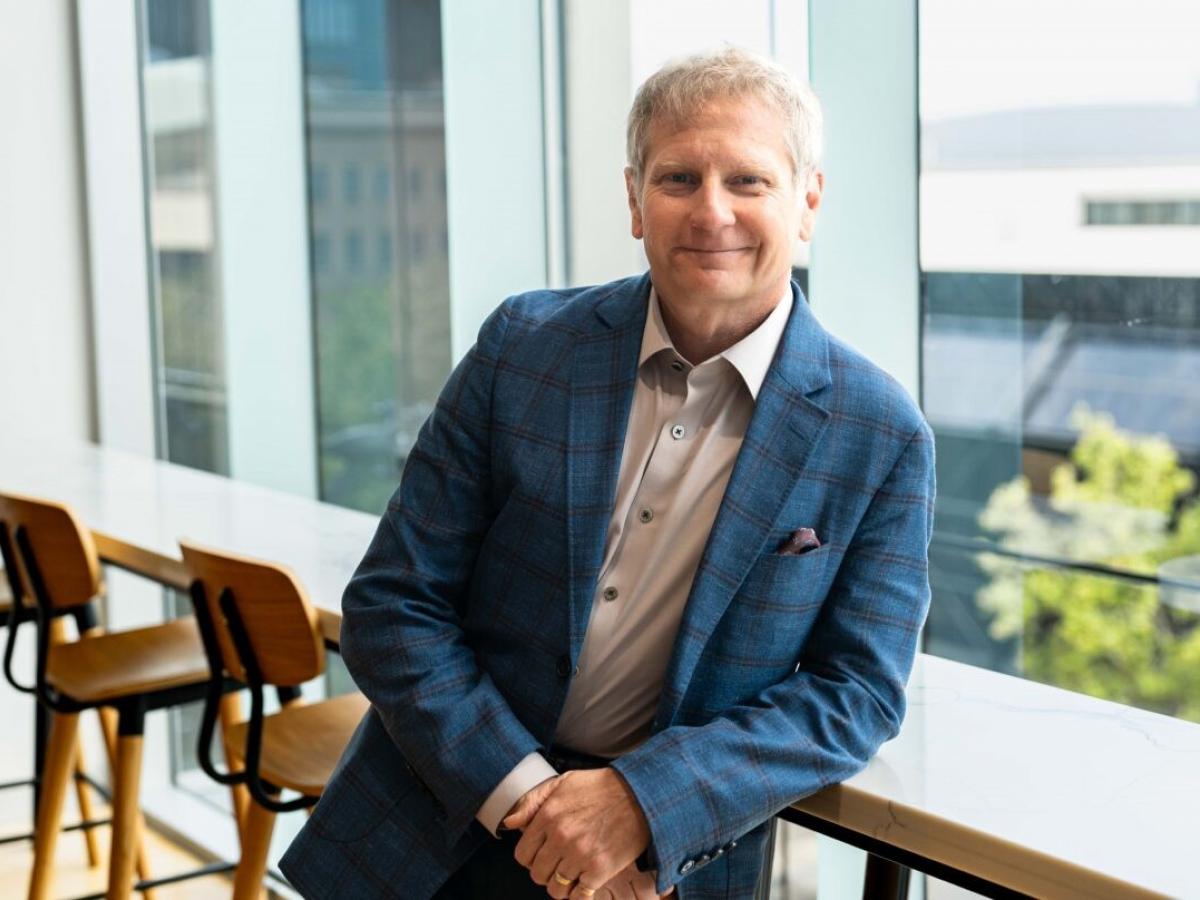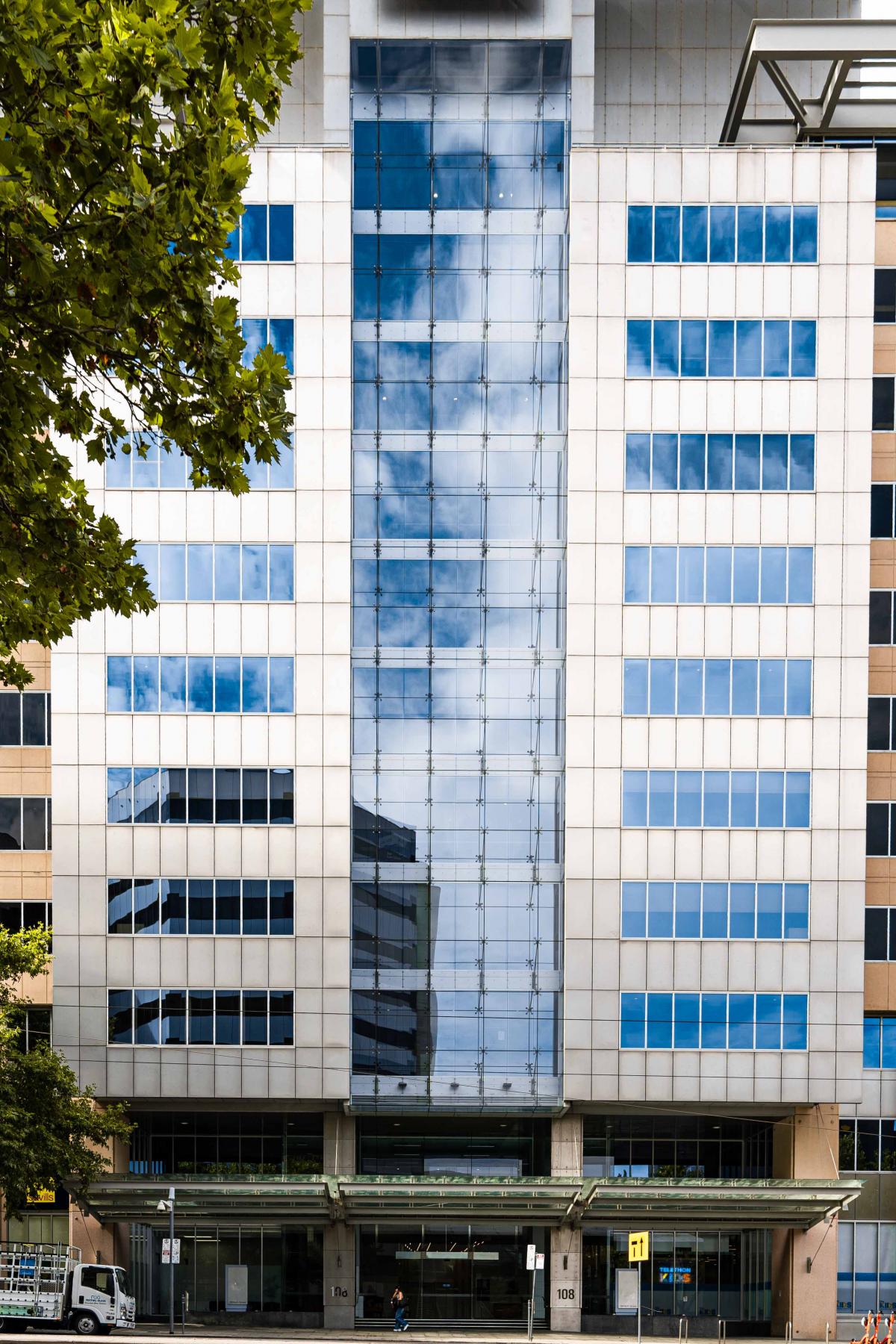Celebrating our colleagues: Bruce Lines

Bruce Lines, Executive Director, University Integration, Integration Management Office.
The Integration Management Office is guiding the transition to Adelaide University from its North Terrace HQ, halfway between the city campuses of University of Adelaide and UniSA.
At its helm is Bruce Lines, the University of Adelaide’s Executive Director, overseeing a task of monumental scale and complexity.
It's a bit of a cliché to talk about higher education being transformative, but that was my experience. I didn’t really enjoy high school but when I got to uni, I just felt like I had found my place: it was intellectually challenging, I met like-minded people, and I sort of came into my own.
My very first university job was at the University of Queensland Student Union, as postgraduate organiser giving advice to higher degree by research students about good supervision, intellectual property issues, and so on. From junior positions, across faculties and central areas, I just sort of moved through the ranks and it all felt very natural.
I finished an honours degree, and then I worked for a while. I ended up doing a Master of Public Policy … and then when I ended up in management roles I thought well, I really need an MBA. So, I have two Masters degrees.
My role now with the IMO is dedicated to the transition to AU. We have an immoveable deadline – we have to open the new university on the first of January 2026 and so we’ve got plans in place now for what we need to achieve.
Firstly, we’ve got to move the staff into Adelaide University [University of Adelaide professional staff moved on 26 January] and then we need to go through the processes that will tell people where they’re going to be placed, the structures they are going to be in, which colleagues they’re going to be working with, and who they are going to report to. All those things are incredibly detailed, and will create a lot of consultation, and we expect to get a lot of feedback from people.
Then the other thing is making sure we’ve got our curriculum and our programs and our courses ready so that the students have the smoothest experience possible.
One of the activities is to give every student a study plan, that’s 40-50,000-odd continuing students who will each need a study plan so that they have confidence about being able to complete the degrees they have already commenced.
The team in the student experience area will be about 100 people – I have just approved another 60 roles. We will be setting up a bespoke call centre so students can speak to a staff member if they have a query about their study plan or any other concerns.
We also must ensure that the technology backbone to the new university is in place. So, there are three major releases of technology, with bundling of different systems together, which we need to do because all these systems are integrated.
So, look if we get through that, I’ll be pretty happy! But very simply it’s having the people, the product, and the technology ready to go on the first of January 2026. Those are really the important things the IMO is focused on.
Here at the IMO, we have seconded staff from both universities. One of the things that I have learned is that culture can change rapidly, in the right conditions. So, when people do have a shared goal, when people are collaborating to achieve something, a new culture can emerge quite quickly.

Integrated Management Office
Legitimately, some areas of the University communities are worried about the different cultures of the universities and how that’s going to come together, but I think the IMO demonstrates that actually getting people working side-by-side, for altruistic, positive outcomes, means they really do pull together and end up putting aside their personal investment and start thinking about the future, and the work that they are performing differently.
So, to be clear, I have been really pleased with how quickly people have come together and stopped talking about “when I was at UniSA, we did it like this” and “when I was at Uni of Adelaide, I did it like that.”
So that is one of the things that I hope the two universities can see, and I hope that gives some confidence that the cultural differences maybe are not so great, but if they are we will still be able to influence that pretty quickly.
Once AU is in existence and the leadership team’s firmly in place and the two current universities wind up, it is going to be a work in progress to create the kind of culture and the values that are going to hold AU in good stead. But I see that in what’s already been achieved in the IMO, and also in what I see of the two universities coming together, rapid decision-making, working in – to use a cliched term – an agile way.
I think AU will have a workforce that is much more comfortable with change, much more willing to roll up the sleeves and do things differently, and to work in very innovative ways. That is going to hold the new university in very good stead.
When people look at what we are doing, they cast around for other examples, but we can’t find another example of where two universities of our size have come together. It’s an exceedingly rare thing in higher education. So, there is best practice about certain things in the IT space, or in business process redesign, but there really is not a playbook for bringing about this new university.
In my opinion, others should follow what we are doing because Australia cannot support the number of universities that it has – the economic settings mean many universities will struggle financially if they do not do something like this.
The only thing I’d say though is that in Australia it is quite difficult to create the settings for this kind of change. Universities are creatures of legislation; they are not in the private sector. So, there are quite a few forces that militate against this occurring. But if more universities do not do it, then the sector itself will go into slow decline. One of the ways I manage my wellbeing and the significant changes we are going through is by going to the gym every morning – religiously. There’s always some reason why you should defer things, some emergency that you need to respond to, so if you don’t go with the mindset that this is something that is non-negotiable then you will find it falls away.
I also prioritise having dinner with my family. It doesn’t matter how much work I have got on, even if I need to get back to it afterwards, I always make sure I get home and have dinner with the family, so I get to spend time with my wife, two kids and two dogs, and just be a normal person … for an hour or so!
Written by Jackie Tracy, Communications Coordinator
Photography by Isaac Freeman, Communications Officer
